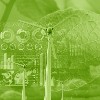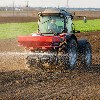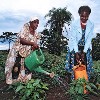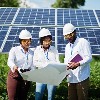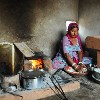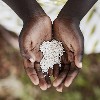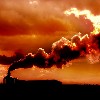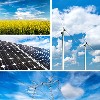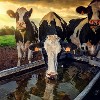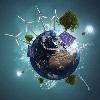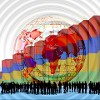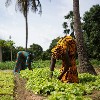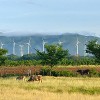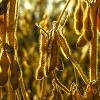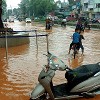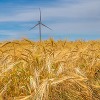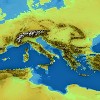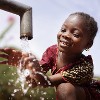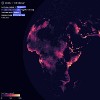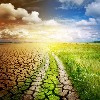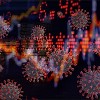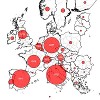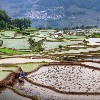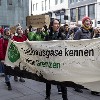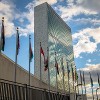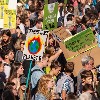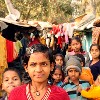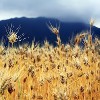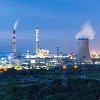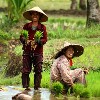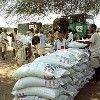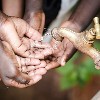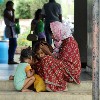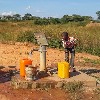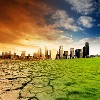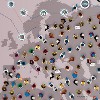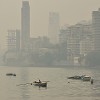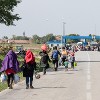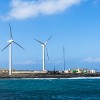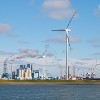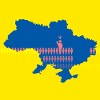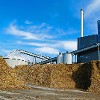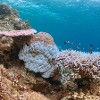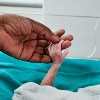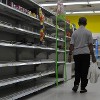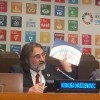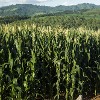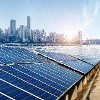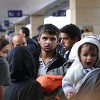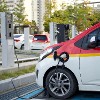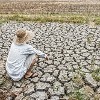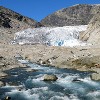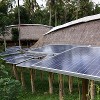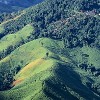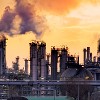Science into policy news
How we measure the effects of methane matters for climate policy
How effective is the promotion of low-meat diets at reducing greenhouse gas emissions compared to carbon pricing when the effectiveness of mitigation policies is measured against methane’s long-term behavior? An international team of researchers explored how focusing either on the short- or long-term warming effects of methane can affect climate mitigation policies and dietary transitions in agriculture. More
Climate action can lessen poverty and inequality worldwide
Climate change disproportionately affects the world’s most vulnerable populations. Not only are these effects compounding and magnifying existing inequalities, but the impacts will increase in severity over time, affecting both current and future generations. A new international study shows that the redistribution of revenues from a carbon tax can promote equity and protect marginalized populations. More
How recovery from COVID-19 and climate policies might affect the use of “clean” cooking fuels
Replacing polluting cooking fuels with clean-burning ones can save lives and reduce our impact on the environment. A group of IIASA researchers shows how recovery from the pandemic and climate mitigation policies might affect access to clean fuels. More
Addressing soaring energy prices and the energy transition in Europe
Europe is in the grip of an unprecedented energy crisis, leading some to call for a renewed focus on fossil fuels to supply much needed electricity for the coming winter months. A statement released by the Group of Chief Scientific Advisors to the European Commission however highlights that accelerating the transition to a low-carbon energy system is a solution that can actually lower energy prices in the long term. More
Exploring the global environmental impacts of China's growing demand for food
Ensuring China’s future food security will have huge environmental impacts, both domestically and globally. A study by IIASA researchers and Chinese colleagues shows that carefully designed policies across the whole of China’s food system, including international trade, are crucial to ensuring that future demand can be satisfied without destroying the environment. More
How recovery from COVID-19’s impact on energy demand could help meet climate targets
The pandemic-related drop in greenhouse gas emissions in 2020 was likely the largest on record in a single year, but how our recovery might affect future emissions is less clear. New modeling examines alternative scenarios and how they could impact climate mitigation targets. More
Where we went wrong in tracking COVID-19 and how to fix it
The COVID-19 pandemic has made painfully clear that our global infectious disease monitoring system is not up to the task. Report after report points to missed opportunities for detecting and acting on the outbreak’s early signs and the devastating resulting loss of life. More
Unleashing science: delivering missions for sustainability
A major qualitative and quantitative step-change is needed in science to support critical societal transformations towards a more sustainable, equitable, and resilient future. IIASA Director General Albert van Jaarsveld contributed to a new report published by the International Science Council (ISC), advocating for a concerted effort by the global science community to step up to the challenge. More
Balancing food security and nitrogen use
Environmental targets to limit excess nitrogen require the large-scale deployment of dedicated nitrogen mitigation strategies to avoid a strong increase in the risk of food insecurity. Without these measures, the amount of dietary energy available to people would be greatly reduced, which would in turn lead to high food prices and an increase in the number of undernourished people. More
How much energy do we need to achieve a decent life for all?
For many, an increase in living standards would require an increase in energy provision. At the same time, meeting current climate goals under the Paris Agreement would benefit from lower energy use. IIASA researchers have assessed how much energy is needed to provide the global poor with a decent life and have found that this can be reconciled with efforts to meet climate targets. More
Building fairness into decision making
The fairSTREAM project just launched under the auspices of the IIASA Strategic Initiatives Program, aims to develop and demonstrate a co-production methodology for including equity and justice (fairness) alongside efficiency in developing sustainable policy options across the food-water-biodiversity nexus. More
An action agenda for Africa’s electricity sector
A new scientific article outlines how to undertake the much needed expansion and modernization of Africa’s electricity sector. The article highlights the crucial role that international partnerships such as the Sustainable Energy for All Initiative have to play in achieving this goal. More
Inequity in the air of India
Air pollution in India is generated more by the wealthy, while the poor suffer most of the health impact, according to a study by five IIASA researchers published in Nature Sustainability. More
Informing policy for long-term global food security
More than 820 million people in the world don’t have enough to eat, while climate change and increasing competition for land and water are further raising concerns about the future balance between food demand and supply. The results of a new IIASA-led study can be used to benchmark global food security projections and inform policy analysis and public debate on the future of food. More
Dealing with global carbon debt
As atmospheric concentrations of CO2 continue to rise, we are putting future generations at risk of having to deal with a massive carbon debt. IIASA researchers and international colleagues are calling for immediate action to establish responsibility for carbon debt by implementing carbon removal obligations, for example, during the upcoming revision of the EU Emissions Trading Scheme. More
Platforms for profit and purpose
Digital platforms are changing the way we do business. IIASA has been involved in a six-year research project to understand the consequences of this shift, including how platforms can improve resilience in an uncertain world. More
Put people at the heart of energy transition policies, say EU Chief Scientific Advisors
Earlier this week, the European Commission’s Group of Chief Scientific Advisors (GCSA) delivered a Scientific Opinion on a systemic approach to the energy transition in Europe in which they provide policy recommendations on how the commission can contribute, accelerate, and facilitate the clean energy transition at the European and global level. More
Finding pathways for sustainable development in Africa
A new project funded under the Belmont Forum’s joint Collaborative Research Action on Pathways to Sustainability will develop novel tools and capacities to understand and manage interlinkages between the Sustainable Development Goals (SDGs), and support sustainable development pathways for African countries, tailored to local capacities and priorities. More
Tackling air pollution in India
Options Summer 2020: IIASA research informed a recent World Bank report outlining how governments can tackle the growing challenge of air pollution using the megacities Delhi, Beijing, and Mexico City as case studies. More
Assessing the feasibility of transformation pathways for achieving the Paris Climate Agreement
What drives the feasibility of climate scenarios commonly reviewed by organizations like the Intergovernmental Panel on Climate Change (IPCC)? And can they actually be achieved in practice? A new systematic framework can help understand what to improve in the next generation of scenarios and explore how to make ambitious emission reductions possible by strengthening enabling conditions. More
New framework to enhance national climate action and achieve global goals
With the COP Climate conference in Glasgow only a few months away, the ambitions of the Paris Agreement and the importance of taking action at the national level to reach global climate goals is returning to the spotlight. IIASA researchers and colleagues have proposed a novel systematic and independent scenario framework that could help policymakers assess and compare climate policies and long-term strategies across countries to support coordinated global climate action. More
Mitigating emissions in the livestock production sector
The farming of livestock to feed the global appetite for animal products greatly contributes to global warming. A new study however shows that emission intensity per unit of animal protein produced from the sector has decreased globally over the past two decades due to greater production efficiency, raising questions around the extent to which methane emissions will change in the future and how we can better manage their negative impacts. More
Accounting for finance is key for climate mitigation pathways
A new study published in the journal Science, highlights the opportunity to complement current climate mitigation scenarios with scenarios that capture the interdependence among investors’ perception of future climate risk, the credibility of climate policies, and the allocation of investments across low- and high-carbon assets in the economy. More
Keywan Riahi appointed to ten-member group of the UN Secretary General
The United Nations Secretary-General, António Guterres, has appointed a new group of ten renowned experts including IIASA Energy, Climate, and Environment Program Director, Keywan Riahi, to support the UN Technology Facilitation Mechanism to bring science into the implementation of the Sustainable Development Goals (SDGs). More
The economic benefits of air quality improvements in the Arctic
A new report released by the Organisation for Economic Co-operation and Development (OECD) assessed the biophysical and economic benefits of air pollution policies in Arctic Council countries. The analysis relied on a suite of modeling tools, including the IIASA GAINS model, to project the impacts of increasingly ambitious policy action up to 2050. More
Empowering citizens for successful energy transitions
The terms “co-creation” and “co-production”, which denote the possibility for laypeople to participate in decision-making processes that affect their lives, have been gaining popularity. A new IIASA-led study explored options for empowering citizens as a driver for moving from awareness about the need to transform energy systems to action and participation. More
The value of cooperation for sustainable development in transboundary river basins
Can cooperation across sectors and countries help to achieve sustainable development? How do stakeholders in the Indus and Zambezi basins envision the future and how can they make that future a reality? IIASA researchers looked into these questions as part of a large-scale initiative with international partners. More
Is it worth investing in solar PV with batteries at home?
Solar energy is a clean, renewable source of electricity that could potentially play a significant part in fulfilling the world’s energy requirements, but there are still some challenges to fully capitalizing on this potential. Researchers looked into some of the issues that hamper the uptake of solar energy and proposed different policies to encourage the use of this technology. More
Strengthening water resources planning in East Africa
IIASA researchers worked with local stakeholders from the East African Community to explore and co-develop regional water scenarios that can enhance understanding of the up- and downstream water sector interactions in the extended Lake Victoria Basin to facilitate rational water resource planning. More
A new way to measure human wellbeing towards sustainability
The Sustainable Development Goals (SDGs) are a blueprint to achieve a better life for all and to ensure that no one is left behind. The partly overlapping and contradictory objectives of the SDGs can however make it difficult to assess overall progress. A group of researchers have proposed a new, tailor-made metric that measures development based on long-term human wellbeing. More
Sustainable water management key to scaling up bioenergy production
To avoid a substantial increase in water scarcity, biomass plantations for energy production need sustainable water management, a new study shows. More
Quality education essential to closing the growing global skills gap
With rapid educational expansion in many developing countries, much progress has been made in terms of access to education. According to a new IIASA-led study, being in school is however not the same as learning and this expansion in quantity may come at the expense of quality, with the possible negative implications of the current COVID-19 pandemic on schooling possibly exacerbating the situation. More
Advancing scientific cooperation on pandemic research
IIASA and the Russian Foundation for Basic Research (RFBR) are proud to announce the winners of their joint call for research proposals around the COVID-19 pandemic. More
How is the digitalization of daily life impacting climate change?
IIASA researcher Charlie Wilson has been awarded a European Research Council (ERC) grant to study how the digitalization of our everyday lives impacts climate change and to explore how it can be steered to help, rather than hinder climate action. More
Transformations within reach: Pathways to a sustainable and resilient world
It is clear that COVID-19 has drastically changed our world, but how can we use the lessons learnt to build a more resilient and sustainable future? The International Institute for Applied Systems Analysis (IIASA) and the International Science Council (ISC) have drawn on the combined strengths and expertise of the two organizations to help find a way forward. More
Harnessing the power of crowd-driven artificial intelligence
The European Research Council (ERC) will fund the development of an innovative platform incorporating the IIASA crowdsourcing game Picture Pile. IIASA Strategic Initiatives Program Director Steffen Fritz will lead the project. More
Working towards carbon neutrality in China
IIASA researchers contributed to a new report that argues for an integrated economy-wide decarbonization, in which China not only meets its carbon neutrality target, but also achieves a broader vision for growth and development. More
Cooperation across boundaries and sectors could boost sustainable development in South Asia
A new analysis of food, energy, water, and climate change in the Indus Basin shows how a cross-boundary and multi-sectoral perspective could lead to economic benefits and lower costs for all countries involved. More
Assessing the impacts of global climate change on population trends
The European Research Council (ERC) will fund groundbreaking research led by IIASA World Population Program Deputy Director Raya Muttarak, which will comprehensively address the impacts of climate change on population dynamics. More
Are people healthy enough to retire later?
While many people are now enjoying longer, healthier lives, current retirement ages are posing challenges for both policymakers and retirees. A new study looked into whether there is potential to increase the retirement age based on the relationship between working life expectancy and health aspects important for work ability for women and men in Europe. More
COVID-19: A shock to the global system
Options Winter 2020: Systems science is ideally positioned to address global impacts and harness opportunities brought about by the COVID-19 pandemic. IIASA is actively involved in addressing emerging issues and supporting policymakers on the road to a more sustainable post-COVID world. More
Informing policy for more resilient food systems in West Africa
Even before COVID-19, the threat of climate change was affecting the ability of West African food systems to deliver healthy, sustainable, and nutritious foods. In a recent paper published in Nature Food, an international team of researchers provide evidence-based policy recommendations to support West African governments in reforming food systems to make them more resilient. More
A roadmap for the future of systems science at IIASA
Options Winter 2020: A bold new research strategy will ensure that IIASA continues to fulfill its mandate of providing independent, systems science-based insights to global and universal challenges over the next decade. More
The post-COVID digital workplace
Options Winter 2020:Practically overnight, COVID-19 lockdowns have caused the international research community to move its activities online. What has this meant for IIASA and our ability to produce and communicate research? More
Interview: Collaborating for a sustainable post-pandemic world
Options Winter 2020: Q&A with Heide Hackmann, CEO of the International Science Council and IIASA Distinguished Visiting Fellow. More
Opinion: Steering a course to sanity
Options Winter 2020:HRH Princess Sumaya bint El Hassan, President of the Royal Scientific Society of Jordan (RSS) explains the importance of science in building a global society that takes responsibility for both our planet and ourselves. More
In pursuit of more equitable and just societies
Options Winter 2020: Raya Muttarak joined the institute in September 2011 and is currently the IIASA World Population Deputy Program Director. She has been appointed Population and Just Societies Program Director as of 1 January 2021. More
Where are they now: Arame Tall
Options Winter 2020: Arame Tall was a participant of the 2010 IIASA Young Scientists Summer Program (YSSP). She is currently supporting the implementation of the World Bank’s Action Plan on Climate Change Adaptation and Resilience. More
How effective are social impact assessments in Mexico's renewable energy sector?
Options Winter 2020: IIASA researchers explored the effectiveness of social impact assessments in overcoming local opposition to the implementation of renewable energy projects. More
Tackling the growing challenge of urban air pollution
How can fast growing cities keep air pollution in check? A recent World Bank report highlighting IIASA research explores this tricky question, looking at the kinds of policies and actions cities have taken to tackle poor local air quality, thus providing lessons for other cities. More
The impacts of climate change on Brazilian agriculture
Options Winter 2020: A recent IIASA study highlighted the importance of considering the impacts of changes in temperature and precipitation in the development of Brazilian agribusiness. More
Determining the relationship between rainfall and child stunting in India
Options Winter 2020: Research shows that policy interventions targeting particularly vulnerable populations are needed to curb the effects of changing weather patterns on the health of at risk children in India and elsewhere. More
Integrated management of food-energy-water-land for sustainable development
Options Winter 2020: A joint project between IIASA and the National Academy of Science Ukraine has provided valuable input to Ukrainian policies based on the principles of sustainable development. More
Using technology to solve the challenges of increased water demand in China
Options Winter 2020: A detailed picture of water use in China can help to identify key drivers and mechanisms behind changing water use patterns, enabling more reliable future projections and better policies. More
Hotspots Explorer makes climate risk research accessible
IIASA, the United Nations Industrial Development Organisation, and the Global Environment Facility have launched an interactive online mapping tool that allows the public and policymakers to easily explore overlapping and interconnected climate risks around the world. More
Informing the next generation of biodiversity goals
According to an international team of researchers, a ‘safety net’ made up of multiple, interlinked and ambitious goals is needed to tackle nature’s alarming decline. More
Investment in conservation efforts needs to be stepped up
National governments have fallen well short of their conservation commitments under the global nature conservation treaty, the Convention on Biological Diversity. An international consortium of scientists has conducted a global review of area-based conservation efforts, including both protected areas and other effective area-based conservation measures. More
Global food production poses an increasing climate threat
According to the authors of a new study published in Nature, rising nitrous oxide emissions are putting reaching climate goals and the objectives of the Paris Agreement in jeopardy. More
Climate-friendly cooling to help ease global warming
A new IIASA-led study shows that coordinated international action on energy-efficient, climate-friendly cooling could avoid as much as 600 billion tonnes CO2 equivalent of greenhouse gas emissions in this century. More
Decent living for all does not have to cost the Earth
Global energy consumption in 2050 could be reduced to the levels of the 1960s and still provide a decent standard of living for a population three times larger, according to a new study. More
Achieving clean air for all is possible
Air pollution is currently the largest environmental risk factor for human health globally and can be linked to several million cases of premature deaths every year. A new study however shows that it is possible to achieve clean air worldwide with fundamental transformations of today’s practices in many sectors, supported by strong political will. More
Climate change triggers migration
Environmental hazards affect populations worldwide and can drive migration under specific conditions, especially in middle-income and agricultural countries. According to a new study, changes in temperature levels, increased rainfall variability, and rapid-onset disasters such as tropical storms play an important role in this regard. More
Bending the curve of biodiversity loss
Plant and animal species across the world are steadily disappearing due to human activity. A major new IIASA-led study suggests that without ambitious, integrated action combining conservation and restoration efforts with a transformation of the food system, turning the tide of biodiversity loss by 2050 or earlier will not be possible. More
Evaluating the effectiveness of travel bans
With the reopening of flights during the summer holiday season in Europe, many countries have started to see an increase in COVID-19 infections. A new IIASA-led study sheds light on how COVID-19 spreads regionally and between countries, as well as on how effective governmental measures to curb the spread of the pandemic have been to date. More
Making comprehensive water resources modeling more accessible
A new large-scale, open source hydrological and water resources model developed at IIASA will support and enable different stakeholder groups and scientific communities to engage with a hydrological model and support their investigations. More
Jordan joins IIASA as a prospective member
The Hashemite Kingdom of Jordan has joined IIASA as a prospective member through the Royal Scientific Society of Jordan. More
When is someone old?
Populations around the world are living longer lives than was the norm just a few decades ago, presenting governments with significant challenges in terms of caring for their growing elderly populations. According to a new study published in PLOS ONE, understanding how to assess who is elderly is a crucial first step for our understanding of population aging. More
Innovations for sustainability in a post-pandemic future
The COVID-19 pandemic has thrust the world into turmoil and disrupted the status quo, but it is also providing opportunities for innovation in the way we live and work. According to the latest report released by The World in 2050 (TWI2050) initiative, the crisis can provide an opportunity to create sustainable societies with higher levels of wellbeing for all. More
Planning for a growing elderly population
The fact that people are living longer lives represents one of the crowning achievements of the last century, but also requires careful planning on the part of governments. A new IIASA study investigated the prevalence of activity limitations among older adults in 23 low- and middle-income countries, to help policymakers prepare for the challenges associated with the world’s aging population. More
New scenarios to help global finance go green
A key role of central banks is to strive for financial stability. To assess climate destabilization risks, major central banks and supervisors plan to utilize a new set of climate scenarios developed by an international team of researchers. More
Matching-commitment agreements to incentivize climate action
Many countries are failing to comply with the non-binding commitments of the Paris Agreement, making it increasingly clear that we have to reconsider how to ensure collective action to limit global warming to less than 2°C above preindustrial levels. A new IIASA-led study supports a different approach to designing an international climate agreement that would incentivize countries to cooperate. More
Modeling Israel’s energy future
Options Summer 2020: Researchers from IIASA and Israel have customized the IIASA MESSAGE and GLOBIOM models to Israel’s unique context, to provide Israeli policymakers with useful options and analyses as they plan for the future. More
Making sense of climate scenarios: New toolkit available for decision makers
To make climate scenarios work for decision makers, an international team of researchers have developed a comprehensive interactive online platform. More
Building pathways to sustainability in a post-COVID world
IIASA and the International Science Council (ISC) have established a partnership combining the strengths and expertise of the two organizations to define and design sustainability pathways, through a multi-stakeholder dialogue, that will enable a more equitable post-COVID world. More
Why are we still failing to stop deforestation?
While national and international efforts to reverse the trend of deforestation have multiplied in recent years, there is still no clear evidence to suggest that these initiatives are actually working. A new paper published in One Earth, calls for a radically different approach that focuses on our understanding of how individuals make their choices about forests and livelihoods. More
Five years after the Paris Agreement: The gap between promises and implementation
The results of a new study show that achieving the goals of the Paris Agreement will require a deep reduction in global greenhouse gas emissions, ideally by around 40% to 50% by 2030. More
A new approach to measuring inequalities in development
A new study by researchers from IIASA and Hong Kong University of Science and Technology for the first time systematically explored and compared the use of the Human Life Indicator as a viable alternative to the conventional Human Development Index as a means of measuring progress in development. More
Economic recovery after shutdown could take up to three years
The coronavirus pandemic poses an enormous challenge for the domestic and global economy. Despite the measures taken by the Austrian government, the consequences of the lockdown and partial suspension of global trade flows will be felt for a long time. More
Exploring the link between education and climate change
What are the most effective ways to achieve desired sustainable development outcomes across all aspects of wellbeing, and how might the pursuit of some of these goals affect progress toward others? A new study by an international team of researchers aims to address these questions to help understand possible synergies and tradeoffs among these goals. More
Slovak Republic re-establishes ties with IIASA
The Slovak Republic has rejoined IIASA as a national member with its membership supported through the Ministry of Education, Science, Research, and Sport, and the Slovak Committee for Cooperation with IIASA. More
COVID-19: Visualizing regional indicators for better decision making
As the COVID-19 pandemic sweeps across the globe, it is fast becoming clear that no one is exempt from its disruptive effects. IIASA researchers are working to visualize key demographic and socioeconomic information to help inform decisions by health professionals, governments, and policymakers to address the crisis. More
Planning for future water security in China
China’s fast economic growth and accompanying rise in food demand is driving an increase in water use for agriculture and industry, thus threatening the country’s water security. The findings of a new study underscore the value and potential of technological adoptions to help design targets and incentives for water scarcity mitigation measures. More
India rejoins IIASA
Recognizing the mutual benefits of scientific collaboration in a broad field of activities of global concern and interest, India has rejoined IIASA as a full member through the Technology Information, Forecasting, and Assessment Council (TIFAC). More
Rethinking mortality and how we plan for old age
Many people dream of comfortably living out their golden years. A new IIASA study however shows that older Europeans, and especially women, frequently underestimate how many years they have left, which could lead to costly decisions related to planning for their remaining life course. More
From climate change awareness to action
Awareness of climate change and its impacts is not enough to move people to action. New research on how people’s worldviews affect their perceptions and actions could help policymakers and activists reframe the discussion around climate change mitigation. More
Containing methane and its contribution to global warming
Methane is a gas that deserves more attention in the climate debate as it contributes to almost half of human-made global warming in the short-term. A new IIASA study shows that it is possible to significantly contribute to reduced global warming through the implementation of available technology that limits methane release to the atmosphere. More
New systemic approach needed to tackle global challenges
Putting systemic thinking at the centre of policymaking will be essential to address global issues in an era of rapid and disruptive change, according to a new joint report by IIASA and the Organisation for Economic Co-operation and Development (OECD). More
Increasing opportunities for sustainable behavior
To mitigate climate change and safeguard ecosystems, we need to make drastic changes in our consumption and transport behaviors. A new IIASA study shows how even minor changes to available infrastructure can trigger tipping points in the collective adoption of sustainable behaviors. More
Effective institutions to support sustainable development
IIASA provided scientific input to the World Public Sector Report 2019, prepared by the Department of Economic and Social Affairs of the United Nations (UNDESA). The report focuses on the Sustainable Development Goal 16 on public institutions. More
Vienna Energy Forum 2020 announced at COP25
Her Excellency Maria Patek, Austria’s Minister for Sustainability and Tourism, announced the Vienna Energy Forum (VEF) 2020 during the high-level segment of the United Nations Conference on Climate Change (COP 25). More
Highlighting the importance and vulnerability of the world’s water towers
Mountains and highlands are often referred to as natural “water towers” because they provide lowland communities with essential freshwater for drinking, irrigation, industry, food, and energy production. A new Nature study provides insight into this valuable resource, which is crucial to the welfare of 1.9 billion people. More
Differences in replacement level fertility point to inequalities
The percentage of the world’s population that is above or below the ‘replacement level of fertility’ has long been used as a measure of demographic development. A new study revisited how this metric is calculated and how useful it really is in terms of informing policy decisions. More
Informing better policies for an aging population
A new book by IIASA World Population Program researchers offers an opportunity to rethink how we define and measure aging to inform better policies for future societal and economic health. More
Strengthening air quality management in China
Options Winter 2019/20:The Chinese Government has officially adopted the IIASA Greenhouse Gases – Air Pollution Interactions and Synergies (GAINS) model to strengthen air quality management in the country. More
How much energy do we really need?
Two fundamental goals of humanity are to eradicate poverty and reduce climate change, and it is critical that the world knows whether achieving these goals will involve trade-offs. New IIASA research for the first time provides a basis to answer this question, including the tools needed to relate basic needs directly to resource use. More
Switching to solar and wind will reduce groundwater use
IIASA researchers explored optimal pathways for managing groundwater and hydropower trade-offs for different water availability conditions as solar and wind energy start to play a more prominent role in the state of California. More
Improving governance is key for adaptive capacity
Governance in climate vulnerable countries will take decades to improve, substantially impeding the ability of nations to adapt to climate change and affecting billions of people globally, according to new research published in Nature Sustainability. More
Exposing blind spots in the carbon budget space
The impact of 1°C of global heating is already having devastating impacts on communities and ecosystems across the globe. An international research group that included researchers from IIASA and Japan, identified biases towards some selected carbon budgets in the current scenario literature. They propose a more comprehensive approach to systematically explore the carbon budget scenario space. More
Integrated solutions for the Indus Basin
New framework helps decision makers find science-based pathways to address water resources and connected sustainability challenges in the Indus River basin. More
The long arm of childhood conditions
Available research on the impact of a person’s socioeconomic status during childhood suggests that the circumstances one grows up in matter a great deal for adult health. The results of a new IIASA study supports the notion of a “long arm of childhood conditions” that remains invisible beyond mid-life but can affect health satisfaction later in life. More
A roadmap to make the land sector carbon neutral by 2040
Land is critical to human livelihoods and wellbeing, while actions related to land use also play an important role in the climate system. IIASA researchers contributed to the development of a new roadmap outlining actions on deforestation, restoration, and carbon cuts that could lead to the land sector becoming carbon neutral by 2040 and a net carbon sink by 2050. More
Population aging to create pockets of climate vulnerability in the US
Population aging projections across the US show a divide between cities and rural areas, which could lead to pockets of vulnerability to climate change. More
Citizen science for sustainable development
Monitoring progress on the UN Sustainable Development Goals requires a huge amount of data. Citizen science could help fill important data gaps, say IIASA researchers. More
Who is telling the truth about their health?
When researchers or policymakers ask health related questions – which they do a lot – they often rely on self-reported rather than tested health data. IIASA researchers looked into how reliable this type of data is for research and found that, depending on country or age, self-reported data could be highly biased. More
Assessing the effects of climate change on future wheat production
Wheat is the world’s largest rain-fed crop in terms of harvested area and supplies about 20% of all calories consumed by humans. A new study has found that unless steps are taken to mitigate climate change, up to 60% of current wheat-growing areas worldwide could see simultaneous, severe and prolonged droughts by the end of the century. More
Operationalizing targets for biodiversity conservation and restoration
The Nature Map Consortium has introduced new global maps that integrate available data on biodiversity and carbon to assist country policies for biodiversity and land-based greenhouse gas emissions. More
Exploring the future of coal power in water scarce Asia
Many aspects of modern energy systems necessitate access to reliable water resources. The findings of a new study involving IIASA researchers shows that Developing Asia’s long-term electricity generation plans – which relies heavily on coal power generation – could be significantly impacted by regional changes in the availability of water under climate change. More
Exposing the dirty footprint of the broken grid
A newly released report by the International Finance Corporation (IFC) shows that fossil fuel-burning backup generators in developing countries produce as much energy as 700-1,000 coal-fired power stations, consume US$50 billion in annual spending, and emit dangerous chemicals into homes and businesses. More
Rethinking scenario logic for climate policy
Current scenarios used to inform climate policy have a weakness in that they typically focus on reaching specific climate goals in 2100 – an approach which may encourage risky pathways that could have long-term negative effects. A new IIASA-led study presents a novel scenario framework that focuses on capping global warming at a maximum level with either temperature stabilization or reversal thereafter. More
Landmark report outlines critical transitions for transforming food and land use
A new report released by the Food and Land Use Coalition (FOLU) is the first to assess the benefits of transforming global food and land use systems, as well as the mounting costs of inaction. The authors call on world leaders to act now and advance the economic case for change. More
How can we feed the world without overwhelming the planet?
Sustainable Development Goal (SDG) 2 calls for ending hunger, achieving food security and improved nutrition, and promoting sustainable agriculture. The environmental challenges posed by agriculture are however massive, and many fear that they will only become more pressing as we try to meet the growing need for food worldwide. IIASA researchers and colleagues from Japan propose alternative hunger eradication strategies that will not compromise environmental protection. More
Deep transformations needed to achieve the SDGs
The Sustainable Development Goals and the Paris Agreement on Climate Change call for deep transformations that require complementary actions by governments, civil society, science, and business. IIASA contributed to a new study outlining six major transformations that will be required to achieve these ambitious goals. More
Taking on SDG 6: Launch of the Water Scarcity Clock
IIASA contributed to the development of the Water Scarcity Clock – a free webtool that allows decision makers to monitor the number of people around the globe suffering from water scarcity in real time. The new tool aimed at policymakers was launched in Stockholm on Sunday, 25 August to mark the start of this year’s World Water Week. More
Addressing causes of mortality in Zambia
Despite the fact that people in sub-Saharan Africa are now living longer than they did two decades ago, their average life expectancy remains below that of the rest of the world population. A new study looked into the importance of various causes of death in Zambia and how eliminating the most prominent of these would impact life expectancy in the country. More
Examining the link between caste and under-five mortality in India
In India, children that belong to disadvantaged castes face a much higher likelihood of not living past their fifth birthday than their counterparts in non-deprived castes. IIASA researchers examined the association between castes and under-five mortality in an effort to help reduce the burden of under-five deaths in the country. More
Uncertainty in emissions estimates in the spotlight
National or other emissions inventories of greenhouse gases that are used to develop strategies and track progress in terms of emissions reductions for climate mitigation contain a certain amount of uncertainty, which inevitably has an impact on the decisions they inform. IIASA researchers contributed to several studies in a recently published volume that aims to enhance understanding of uncertainty in emissions inventories. More
Observation-driven research to inform better groundwater management policies
Groundwater maintains vital ecosystems and strongly influences water and energy budgets. Although at least 400 million people in sub-Saharan Africa depend on this valuable resource for their domestic water needs, the processes that sustain it and their sensitivity to climatic variability, are poorly understood. IIASA contributed to a study that looked into climate impacts on groundwater in light of changing climatic patterns in Africa. More
Lifting the fog on carbon budgets
The concept of a carbon budget has become a popular tool in guiding climate policy since the Intergovernmental Panel on Climate Change’s (IPCC) Fifth Assessment Report was released in 2014. IIASA researchers were involved in the development of a framework that can help scientists determine which factors affect the size of the remaining carbon budget and how they interact. More
Protecting a forgotten treasure trove of biodiversity
The lesser-known Cerrado biome in Brazil is a hotspot of biodiversity, but it is being destroyed at an alarming rate by unsustainable agricultural activities. A study involving IIASA researchers published in the journal Science Advances, calls attention to this forgotten region and urges the international community to support measures for its protection. More
Curbing indoor air pollution in India
Clean cooking energy transitions are extremely challenging to achieve, but they offer enormous potential health, environmental, and societal benefits. A study by researchers from IIASA, the University of British Columbia, and the Stockholm Environment Institute provides new insights about an Indian program that aims to solve one of the most difficult developmental challenges of the 21st century – smoky kitchens. More
The Digital Revolution: Opportunities and challenges for sustainable development
The Digital Revolution has brought about rapid technological change, transforming the way societies function and how humanity impacts the Earth. A new report describes how digitalization can transform the world and how these changes can be planned for as we move towards 2030 and beyond. More
Picturing access to energy for all in sub-Saharan Africa
Satellite images showing nighttime lights on different continents have long been recognized as an indicator of the availability and use of electricity around the world. IIASA researchers examined the precision with which these images can be converted into detailed maps of electricity access in sub-Saharan Africa. More
Applied science with a global reach
Options Summer 2019: As part of its mandate to provide sound, science-based policy advice, IIASA research regularly forms part of influential global publications aimed at decision makers. More
Exploring the causes of persistent corruption
IIASA researchers used a novel approach to explore the key processes and conditions that determine corruption levels. Their analysis shows that transparency about the integrity of institutions is key to fighting corruption, and that vigilance against corruption must be maintained despite its cost, even when corruption levels appear to be low. More
Education trumps age-structure in terms of providing a demographic dividend
The relationship between population changes and economic growth has been a controversial topic among demographers for many years. A study published in the Proceedings of the National Academy of Sciences of the United States of America (PNAS) today, challenges the dominant view that fertility decline and changes in age structure are key drivers of economic growth. More
Is there a demographic need for migration in Europe?
A European Commission-IIASA flagship report has found that an increase in the EU population aged 65+ is certain – regardless of higher fertility or migration. However, raising labor force participation (particularly for women) and improved education of natives and migrants have the power to nullify aging-related worries. More
Fixing a broken food system
In a comment in Nature, researchers lay out a solution for climate change and food security that draws on an integrated view of agriculture, biodiversity, trade, and nutrition. More
Reducing carbon emissions while improving health is economically attractive
The findings of a study involving researchers from IIASA, Princeton, and several other institutions looked into the question of how much the current generation should invest in reducing carbon emissions for the benefit of future generations. Their findings support the climate targets of the Paris Agreement. More
Gender in the transition to energy for all: From evidence to inclusive policies
IIASA researchers contributed to a new report released by the ENERGIA International Network on Gender and Sustainable Energy that looked at the role of gender in achieving sustainable energy for all. More
Rethinking conservation efforts for improved biodiversity
A study published online by the journal Science, looked into why the global commitment towards the expansion of protected areas has not delivered the expected conservation benefits. The researchers propose a new target and a set of indicators that can galvanize global conservation efforts and lead to positive biodiversity outcomes. More
Poor air quality to remain a problem in India despite pollution control policies
According to an independent study released today by the International Institute for Applied Systems Analysis (IIASA) and the Council on Energy, Environment, and Water (CEEW), more than 674 million Indian citizens are likely to breathe air with high concentrations of PM2.5 in 2030, even if India were to comply with its existing pollution control policies and regulations. More
New measures show population aging likely to end this century
Policymakers have long been concerned about the effects of an aging population on society, but researchers at IIASA have developed a new tool that shows population aging will likely end by the middle of the century in high-income countries. More
Addressing cooling needs and energy poverty targets in the Global South
With most of the northern hemisphere currently in the icy grip of one of the coldest winters ever recorded, in the south it is record breaking heat that is the problem. The results of a new IIASA study show that between 1.8 and 4.1 billion people require access to indoor cooling to avoid heat related stresses. More
New study establishes causal link between climate, conflict, and migration
IIASA-led research has established a causal link between climate, conflict, and migration for the first time, something which has been widely suggested in the media but for which scientific evidence is scarce. More
Integrated pathways for meeting climate targets and ensuring access to safe water
IIASA researchers have led work to develop new pathways showing how the world can develop water and energy infrastructure consistent with both the Paris Agreement and the UN Sustainable Development Goal 6 (SDG6) – Ensure availability and sustainable management of water and sanitation for all. More
Disability among India’s elderly much higher than census estimates
New estimates of disability among India’s elderly population, based on the ability to carry out three basic living activities – walking, dressing, and toileting – show that the scale of the problem is much larger than suggested by the Indian national census. More
European Commission long-term strategy on climate change underpinned by IIASA research
The European Commission has adopted a new long-term strategy, A Clean Planet for all, on how Europe can become climate neutral by 2050 and meet its Paris Agreement commitments, and IIASA research has contributed to the quantitative backbone. More
Climate change and air pollution damaging health and causing millions of premature deaths
IIASA researchers have contributed to a major new report in The Lancet medical journal looking at the effects of climate change on human health, and the implications for society. More
New UNEP report concludes nations must triple efforts to reach 2°C target
IIASA researchers Joeri Rogelj and Daniel Huppmann were among the contributors to the UN Environment Programme’s (UNEP’s) 2018 Emissions Gap Report, which says that while it is still possible to keep global warming below 2°C, the nations of the world must triple their efforts to reduce emissions. More
Crowdsourced field data shows importance of smallholder farms to global food production
A new global field size data set collected as part of a crowdsourcing citizen science project by IIASA researchers has shown that the proportion of smallholder farms may be much larger than previously thought, contributing much more to global food production. More
25 years of Ukraine membership at IIASA
Options Winter 2018/19: The National Academy of Sciences of Ukraine joined IIASA as a National Member Organization in 1994. We look back on 25 years of fruitful collaboration. More
Ensuring a better future through global cooperation
Options Winter 2018/19: Q&A with Heinz Faßmann, Minister for Education, Science, and Research of the Republic of Austria. More
Reducing US coal emissions through biomass and carbon capture would boost employment
Employing bioenergy with carbon capture and storage (BECCS), would not only retain 40,000 jobs currently held as part of the US coal industry but would create 22,000 new jobs in the forestry and transportation sectors by the middle of this century, according to new IIASA-led research. More
Financial and non-financial firms need the same strong regulations to protect economies
Researchers at IIASA and the Complexity Science Hub, Vienna, have discovered that non-financial firms, such as vehicle manufacturers and energy companies, contribute to systemic risk in financial systems in the same way as financial institutions like banks, and as such, should be regulated in the same way. More
New interactive scenario explorer for 1.5°C pathways
IIASA and the Integrated Assessment Modeling Consortium (IAMC) have made the scenarios underlying last week’s Intergovernmental Panel on Climate Change (IPCC) 1.5°C Special Report publicly available, in an interactive online resource. The resource provides scenarios and a suite of visualization and analysis tools, making the assessment more transparent to researchers, policymakers, and the public. More
Innovative tool allows continental-scale water, energy, and land system modeling
A new large-scale hydroeconomic model, developed by a team at IIASA, will allow researchers to study water systems across whole continents, looking at sustainability of supply and the impacts of water management on the energy and agricultural sectors. More
IIASA contributes to IPCC Special Report on Global Warming of 1.5°C
The Intergovernmental Panel on Climate Change (IPCC) has published its Special Report on Global Warming of 1.5°C, a new assessment on minimizing global warming, and multiple IIASA researchers were involved in its production. More
New book looks at dealing with critical risks from climate change beyond adaptation limits
A new book edited by researchers at IIASA, the London School of Economics (LSE) and Deltares looks at the research, political debate and policy options surrounding the impacts of climate change which may be irreversible and beyond physical and social adaptation limits, known as Loss and Damage. More
Paris climate targets could be exceeded sooner than expected
A new study has for the first time comprehensively accounted for permafrost carbon release when estimating emission budgets for climate targets. The results show that the world might be closer to exceeding the budget for the long-term target of the Paris climate agreement than previously thought. More
China’s energy policies: A balancing act between air quality, carbon emissions, and water scarcity goals
China is attempting a shift from coal to natural gas in an effort to address the country’s severe air pollution. A new study shows that although such a switch generally has benefits for air quality, carbon mitigation, and water stress, some options may in fact increase carbon emissions and water consumption. More
Novel framework to address uncertainty in water management
IIASA researchers have developed a general decision-making framework to support policy decisions on the management of water resources, which, for the first time, explicitly takes into account the associated uncertainties. More
India needs ‘giant leap’ to meet 2030 targets in reducing child mortality rates
IIASA researchers have found that almost half of the districts in India are not on track to reduce the mortality rates of newborns and meet the target set out under Sustainable Development Goal 3 (SDG3) for 2030, while a third will not meet the target for under-five mortality rates. More
Climate taxes on agriculture could lead to more food insecurity than climate change itself
New IIASA-led research has found that a single climate mitigation scheme applied to all sectors, such as a global carbon tax, could have a serious impact on agriculture and result in far more widespread hunger and food insecurity than the direct impacts of climate change. Smarter, inclusive policies are necessary instead. More
IIASA researchers help EU states to assess forestry’s role in achieving climate commitments
IIASA researchers have led the development of new guidance for EU member states estimating greenhouse gas emissions and removals from their forests and developing plans to show how they will account for these emissions and removals in the future. More
Behavior-influencing policies are critical for mass market success of low carbon vehicles
Policies to entice consumers away from fossil-fuel powered vehicles and normalize low carbon, alternative-fuel alternatives, such as electric vehicles, are vital if the world is to significantly reduce transport sector carbon emissions, according to new research. More
Six transformations needed to achieve the UN Sustainable Development Goals: major report launched
The World in 2050 (TWI2050) initiative has launched a new report, setting out six key transformations that will enable the world to meet the UN Sustainable Development Goals (SDGs). More
Brazil’s Forest Code can balance the needs of agriculture and the environment
If fully implemented, Brazil’s Forest Code, an environmental law designed to protect the country’s native vegetation and regulate land use, will not prevent growth in Brazilian agriculture, according to new IIASA-led research. More
Biorefineries will have only minimal effects on wood products and feedstocks markets
A new report from researchers from IIASA, Luleå University of Technology (LTU), and RISE Research Institutes of Sweden has shown that more biorefineries, which produce biobased fuels and chemicals, will have only a small effect on the availability and pricing of wood products and feedstocks. More
Clean power is not enough: More action in other sectors needed to meet Paris targets
CO2 emissions from non-electricity energy uses, such as industry, transport, and heating, are the greatest impediment to meeting the Paris climate targets, according to new research from an international team of scientists. More
UK weight misperception highest among overweight and obese, influenced by socioeconomic factors
A new study reveals that overweight and obese adults in the UK are more likely to underestimate their weight status and less likely to try to lose weight, especially among lower-income, lower-education, and minority groups. More
Meeting Paris climate targets will require a substantial reallocation of global investment
A new analysis by an international team of scientists led by IIASA shows that low carbon investments will need to markedly increase if the world is to achieve the Paris Agreement aim of keeping global warming well below 2°C. More
What drives migration?
Options Summer 2018: IIASA research is providing a scientific basis to help design evidence-based migration policies that will benefit Europe while ensuring humanitarian needs are met. More
Opinion: Challenges to science diplomacy
Options Summer 2018: Sir Peter Gluckman is the chief science advisor to the Prime Minister of New Zealand, and an IIASA Distinguished Visiting Fellow. More
Shaping the future of public transport in Sweden
Options Summer 2018: In 2015, Sweden announced an ambitious aim to become one of the first nations to end its dependence on fossil fuels. Work done by IIASA researchers in collaboration with Swedish partners, is now contributing to discussions to make this goal a reality. More
Global warming can be limited to 1.5°C by transforming how we move around, heat our homes, and use devices
Global warming can be limited to 1.5°C by unprecedented improvements in the energy efficiency of everyday activities, according to new research from an international team of scientists at IIASA. More
New papers highlight economic benefits of European-Eurasian economic ties
A IIASA-led project looking at economic ties between the European Union (EU) and the Eurasian Economic Union (EAEU) has published three new reports offering recommendations to improve economic cooperation despite ongoing political cool-down. More
Global temperature rise of 2°C doubles the population exposed to multiple climate risks compared to a 1.5°C rise
New research identifying climate vulnerability hotspots has found that the number of people affected by multiple climate change risks could double if the global temperature rises by 2°C, compared to a rise of 1.5°C. More
Gender discrimination results in the deaths of extra 239,000 girls per year in India
A new study has found that there is an average of 239,000 excess deaths per year of girls under the age of five in India, or 2.4 million in a decade, and excess female child mortality is found in 90% of districts in the country. More
Education, not income, the best predictor of a long life
Rising income and the subsequent improved standards of living have long been thought to be the most important factors contributing to a long and healthy life. However, new research from Wolfgang Lutz and Endale Kebede, from IIASA and the Vienna University of Economics and Business (WU) has shown that instead, the level of education a person has is a much better predictor of life expectancy. More
Achieving healthy, climate-friendly, affordable diets in India
New research led by IIASA researcher Narasimha Rao has shown how it might be possible to reduce micronutrient deficiencies in India in an affordable way whilst also reducing greenhouse gas emissions. More
Models show how to limit global temperature rise to 1.5°C
There are several ways to limit global temperature rise to 1.5°C by 2100, and new research led by IIASA researcher Joeri Rogelj shows under what conditions this could happen. More
Sea levels will rise 20 cm more by 2300 for each 5-year delay in peak emissions
Ensuring that global CO2 emissions peak as soon as possible is crucial for limiting sea-level rises, even if global warming is limited to well below 2°C. A new study involving IIASA research has now estimated how much sea levels will rise as a result of peak emission delays. More
Removing fossil fuel subsidies will not reduce CO2 emissions as much as hoped
Removing fossil fuel subsidies would have only a small effect on CO2 emissions and renewable energy use, new research has shown. The largest emissions savings would be in oil and gas exporting countries, where fewer poor people would be affected, and subsidy removal can be aided by currently low oil prices. More
Modeling Indonesia’s energy revolution
Options Winter 2017/18:Indonesia has ambitious energy goals: only rigorous analysis can guide it to the best solution. More
Solving Delhi’s pollution troubles
Options Winter 2017/18:“Neighbouring states responsible for 60% of Delhi pollution”, said a recent headline in the Indian Express, adding to the megacity’s debate about its dirty air. More
What is disaster resilience?
Options Summer 2017: True disaster resilience is not just about reducing risk, it must also have sustainable development at its core. More
Ambiguous pledges leave large uncertainty under Paris climate agreement
Emission reduction pledges made by individual countries under the Paris Agreement leave a wide range of possible climate outcomes, according to new research. Without stronger pledges, the study shows, the climate goals may not be possible to achieve. More
Supporting national climate policy
Options Magazine Winter 2016: While policymakers around the world grapple with the complex problem of setting their countries’ climate commitments, IIASA research has been helping to provide a clear, quantitative evidence base. More
Invest in energy to cut air pollution deaths
Options Magazine Winter 2016: Just a small increase in energy investment could cut premature deaths from air pollution in half by 2040, says a new report which was underpinned by key contributions from the IIASA Air Quality and Greenhouse Gases Program. More
Can carbon markets work?
Options Magazine Summer 2016: Carbon markets have been floundering, IIASA research explores whether they can be saved. More
Climate risk management
Options Magazine Winter 2015: Tacklingthe impacts of climate‑related disasters using a risk layering approach. More
NEWS
"Climate Modernity" - The 24H Challenge: How do we want to live and act in the future in Styria ?
Health fears can increase pandemic isolation habits in older Europeans
How circular waste management systems can benefit the environment
Launch of the Northern African Applied Systems Analysis Centre
How we measure the effects of methane matters for climate policy





